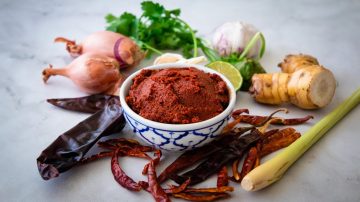Exploring Turkish Sauces: Amazing Flavors of Turkish Cuisine
Recipe Overview
Overview
In this captivating exploration of Turkish sauces, we delve into the unique role they play in enhancing the flavors of various dishes. The speaker emphasizes how sauces in Turkish cuisine differ from their French counterparts, often serving as a subtle yet essential component that elevates the overall dining experience. One standout point is the significance of yogurt, which is not just a side but a vital ingredient that complements many traditional dishes like dolma and mantı. The creamy texture of yogurt helps to balance the heat and richness of the food, making it a beloved staple in Turkish households.
Another fascinating aspect discussed is the introduction of tomatoes into Turkish cuisine, which has transformed many classic sauces. The speaker highlights how tomatoes, when cooked down, require balancing ingredients like sugar and vinegar to counteract their acidity, creating a harmonious flavor profile. This technique is crucial in many Turkish dishes, showcasing the careful consideration given to flavor balance in the culinary tradition.
Tahini also takes center stage as a versatile ingredient that can be used in various applications, from dips to dressings. The speaker’s enthusiasm for tahini is infectious, as they describe its ability to enhance both savory and sweet dishes alike. The use of pomegranate molasses is another highlight, illustrating how this ingredient can add depth and complexity to marinades and sauces, making it a favorite among chefs.
Overall, this exploration of Turkish sauces not only educates viewers about the ingredients and techniques but also invites them to appreciate the cultural significance behind these culinary practices. It’s a delightful journey into the heart of Turkish cuisine, encouraging everyone to experiment with these flavors in their own kitchens.
Recipe Details
Steps & Tips
Dice onions and fry them in butter or olive oil until they turn slightly golden.
Add garlic and red pepper paste to the fried onions.
Add water to the mixture.
Cook potatoes, eggplants, or other vegetables in the sauce.
Beat yogurt until creamy and mix with garlic for a sauce.
Tip: Let yogurt sit to separate water and solids for a creamier consistency.
Serve dishes like dolma and manta with yogurt.
Simmer grated tomatoes with olive oil and garlic.
Tip: Add a pinch of sugar or vinegar to balance the acidity of tomatoes when cooking.
Add sugar, vinegar, salt, and pepper to balance the tomato sauce.
Prepare garlic sauce to serve with dishes.
Tip: Caramelize butter lightly to enhance its flavor without burning.
Melt butter until it bubbles and turns light brown.
Add pepper and tomato paste to the melted butter.
Add water to the mixture to create a sauce.
Tip: Brown the flour and butter mixture to enhance its nutty flavor.
Cook the sauce until it thickens.
Mix yogurt with garlic and vinegar for a sauce.
Tip: Use egg yolk instead of egg white to prevent curdling in yogurt-based sauces.
Mix tahini with lemon juice to create a sauce.
Tip: Mix tahini with lemon juice to create a great dip or sauce.
Mix molasses with vinegar for a marinade.
Tip: Combine molasses with vinegar for a rich marinade that enhances caramelization.
Tip: Use pomegranate molasses in salads for a sweet and sour contrast.
Incorporate pomegranate molasses into salads.
Ingredients
Ingredient: Dairy
→ Substitution: Almond Milk
Ingredient: Gluten
→ Substitution: Gluten-Free Flour
Skill Level
Frequently asked questions
Below you will find answers to the most common questions about this recipe.
Got a Recipe Question? Ask Away!
Interesting Tidbits
- •Turkish sauces are often seen as hidden heroes, enhancing the flavors of dishes without being the main focus.
- •Yogurt is a staple in Turkish cuisine, often used as a sauce to balance flavors and add creaminess.
- •Tomatoes were introduced to Turkish cuisine in the 19th century and have since become a key ingredient in many sauces.
- •Tahini, often referred to as Turkish peanut butter, is a versatile ingredient used in both savory and sweet dishes.
- •Pomegranate molasses is commonly used in marinades and dressings, providing a unique balance of sweetness and acidity.






















